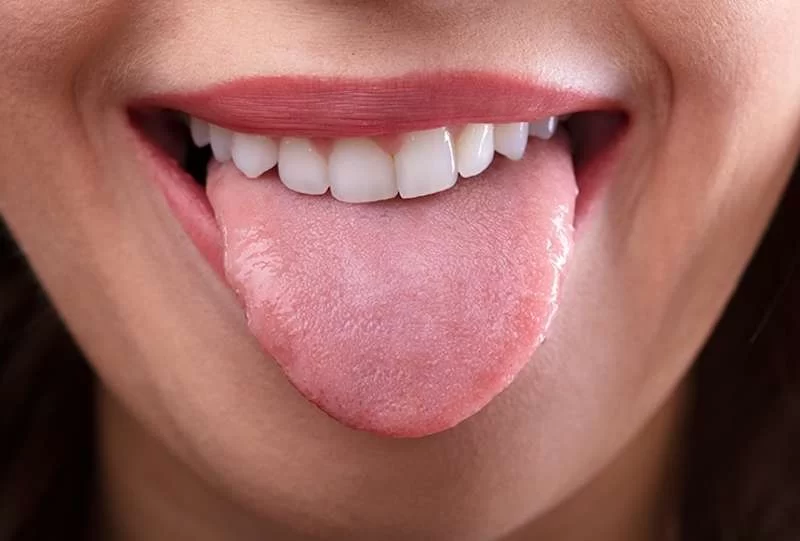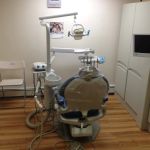
Understanding the Importance of Hydration for Oral Health
When it comes to maintaining a healthy mouth, hydration plays a vital role. We often focus on brushing and flossing as the primary ways to keep our teeth and gums in top condition, but drinking enough water can be just as crucial. Dehydration, which occurs when your body does not have enough fluids, can have a serious impact on your gum health and overall dental hygiene.
How Dehydration Affects Your Gums
Your gums are the foundation of your oral health. When they become inflamed or infected, it can lead to more severe issues, such as gum disease. One of the most common effects of dehydration on the gums is a condition called dry mouth, also known as xerostomia. Saliva is essential for maintaining a moist environment in the mouth and promoting healthy gums. When you're dehydrated, your saliva production decreases, which can lead to a variety of oral health problems.
Dry Mouth: The Link Between Dehydration and Gum Health
Saliva is not just for washing down food; it plays an essential role in protecting your gums and teeth. Saliva helps to neutralize acids that can damage tooth enamel, flush away food particles, and fight bacteria. When you don't drink enough water, your body doesn't produce enough saliva. This lack of moisture can lead to dry mouth, a condition where your mouth feels parched and uncomfortable. Dry mouth can also result in a sticky feeling in your mouth and cause difficulty swallowing or speaking.
Dry mouth can be harmful to your gums in several ways:
- Increased plaque buildup: Without enough saliva, plaque, a sticky film of bacteria, can accumulate more easily on your teeth and gums. This buildup can lead to gingivitis, the early stage of gum disease, which causes redness, swelling, and bleeding of the gums.
- Increased risk of cavities: Saliva naturally helps to neutralize acids that can erode tooth enamel. With less saliva, the risk of tooth decay and cavities increases, which can further impact gum health.
- Increased inflammation: Dehydration can contribute to inflammation in your gums, making them more susceptible to infection. If left untreated, this inflammation can lead to more serious gum diseases, such as periodontitis, which affects the deeper structures of the teeth and can even result in tooth loss.
Why Staying Hydrated is Key for Healthy Gums
Water is essential for the maintenance of healthy gum tissue. The tissue in your gums, like other tissues in the body, requires proper hydration to stay strong and resilient. When you’re properly hydrated, your gums are better able to regenerate and recover from the stresses placed on them by daily activities such as eating, drinking, and brushing your teeth.
Other Effects of Dehydration on Oral Health
While dry mouth and gum issues are among the most common effects of dehydration, the consequences for your oral health extend beyond just your gums. Dehydration can also have an impact on the following areas of your dental health:
1. Bad Breath (Halitosis)
One of the most noticeable side effects of dehydration is bad breath, or halitosis. Without enough saliva, your mouth becomes a breeding ground for bacteria, which can cause unpleasant odors. Saliva helps to wash away bacteria and food particles, but when it's in short supply, the bacteria thrive and cause your breath to smell foul.
2. Increased Sensitivity
Dehydration can cause your gums to recede, which can lead to increased tooth sensitivity. When your gums pull back, the roots of your teeth may become exposed, causing pain when eating hot, cold, or sweet foods. Proper hydration helps to keep your gums healthy and can prevent this issue from developing.
3. Greater Risk of Tooth Decay
As mentioned earlier, saliva is essential for neutralizing acids in your mouth. Without enough saliva, the acid levels in your mouth increase, which can lead to enamel erosion and tooth decay. Dehydration can also reduce your body’s ability to produce enough protective mucus to keep bacteria from adhering to your teeth and gums, which can result in cavities.
How to Stay Hydrated for Optimal Gum Health
Fortunately, staying hydrated is simple and effective for preventing the oral health issues associated with dehydration. Here are some practical tips to help you maintain proper hydration and protect your gums and teeth:
1. Drink Plenty of Water
The most straightforward way to stay hydrated is by drinking water. Aim for at least eight 8-ounce glasses of water per day, or more if you are physically active or live in a hot climate. This will help keep your mouth moist and support saliva production. If plain water doesn’t appeal to you, try adding a slice of lemon or cucumber for extra flavor.
2. Avoid Sugary Drinks
While sugary drinks like soda and juice may quench your thirst temporarily, they can actually exacerbate oral health problems by promoting plaque buildup and increasing the risk of cavities. Try to limit your consumption of sugary beverages, and always rinse your mouth with water after drinking them.
3. Chew Sugar-Free Gum
Chewing gum can help stimulate saliva production, especially if you're experiencing dry mouth. Look for sugar-free gum, as sugar can contribute to the growth of bacteria in your mouth. Xylitol, a common sweetener in sugar-free gum, has been shown to help prevent tooth decay and support oral health.
4. Use a Humidifier
If you live in a dry environment, a humidifier can help add moisture to the air and prevent your mouth from becoming too dry. This is especially helpful while you sleep, as the air in your bedroom tends to be drier at night.
5. Eat Water-Rich Foods
In addition to drinking water, incorporating water-rich foods into your diet can help with hydration. Foods like cucumbers, celery, watermelon, and oranges are high in water content and can contribute to keeping your mouth and body hydrated.
When to Seek Professional Help
If you are experiencing persistent dry mouth or gum problems despite improving your hydration, it's important to consult with your dentist or doctor. They can help determine whether dehydration is the underlying cause of your oral health issues or if there is another condition that requires treatment. Regular dental checkups are essential for identifying problems early and keeping your gums and teeth in good shape.







 ChapCare by AltaMed Medical and Dental Group — Pasadena, Fair Oaks3.0 (47 review)
ChapCare by AltaMed Medical and Dental Group — Pasadena, Fair Oaks3.0 (47 review) Nanuet Family Dentistry: Dr. Srinivasa5.0 (2 review)
Nanuet Family Dentistry: Dr. Srinivasa5.0 (2 review) Sea of Smiles Pediatric Dentistry4.0 (585 review)
Sea of Smiles Pediatric Dentistry4.0 (585 review) Campfire Smiles Pediatric Dentistry5.0 (145 review)
Campfire Smiles Pediatric Dentistry5.0 (145 review) Absolute Dental - Aliante4.0 (910 review)
Absolute Dental - Aliante4.0 (910 review) Buena Park Smile Dental Group4.0 (37 review)
Buena Park Smile Dental Group4.0 (37 review) The Importance of Oral Health Education During Pregnancy for a Healthy Pregnancy
The Importance of Oral Health Education During Pregnancy for a Healthy Pregnancy Best Tips for Brushing Your Teeth Properly for Healthy Gums: Essential Techniques for Oral Health
Best Tips for Brushing Your Teeth Properly for Healthy Gums: Essential Techniques for Oral Health Why Skipping Dental Checkups Can Lead to Bigger Oral Health Problems
Why Skipping Dental Checkups Can Lead to Bigger Oral Health Problems Advantages of Porcelain Dental Restorations
Advantages of Porcelain Dental Restorations How Can Diabetes Cause Tooth and Gum Problems? Preventing and Managing Oral Health Issues
How Can Diabetes Cause Tooth and Gum Problems? Preventing and Managing Oral Health Issues Healthy Habits for Promoting Good Oral Health and Hygiene: Tips for a Healthy Smile
Healthy Habits for Promoting Good Oral Health and Hygiene: Tips for a Healthy Smile